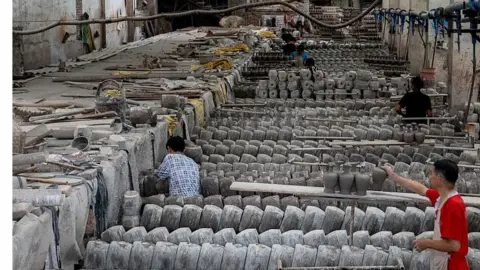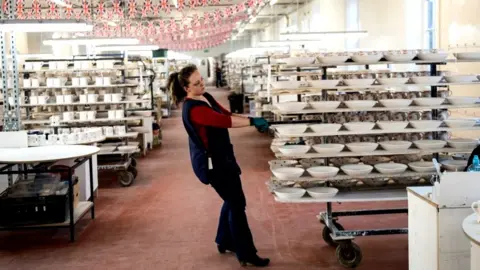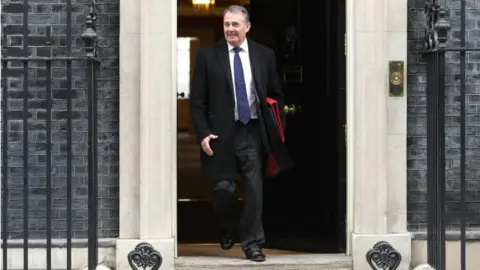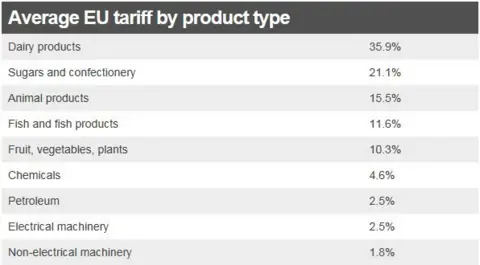UK to keep trade penalties post-Brexit
 Getty Images
Getty ImagesChinese car tyres, steel products and ceramic goods will continue to be penalised after Brexit, under trade remedy measures announced by the government.
The European Union applies tariffs to imports that have been judged to be traded unfairly.
The UK government said that 43 such remedies to trading will be maintained.
They will be continued if the UK leaves the EU without an agreement or after the transition period.
Chinese products in particular have been penalised for being dumped on international markets at low prices.
The International Trade Secretary Liam Fox also announced that 66 measures designed to protect European Union producers will not apply after Brexit.
That includes tariffs on Thai sweetcorn, mandarins from China and solar glass from China, used to make solar panels.
"The decision on whether to maintain measures was based on whether those measures mattered to the UK. We are scrapping measures that don't significantly benefit British businesses and this will see savings for people throughout the country," Mr Fox said in a statement.
He added that there would be a review of the tariffs to see if they needed changing.
 Getty Images
Getty Images"What's crucial is what's missing from the Government's announcement today," said Laura Cohen, chief executive of the British Ceramic Confederation.
"We still do not know what they are going to do with those underlying, most favoured nation tariffs, onto which trade remedies are added.
"If Government drops these to zero in a no-deal Brexit, then ceramic tiles and tableware, and many thousands of other goods manufactured in this country will be in jeopardy, because a flood of imports will cause untold damage to our domestic markets," she said.
'Mammoth task'
The body representing steel makers welcomed the trade remedies announced today, but warned that the UK is not ready to manage trade issues.
"Even a highly experienced authority would struggle with the sheer volume and complexity of reviewing all the transitioned measures, implementation of the UK's new steel safeguards as well as taking on a brand new investigations into dumping and subsidies," said the Director General of UK Steel Gareth Stace.
"UK steel producers are at risk of exposure to unfair trading practises whilst the fledgling Trade Remedies Authority wrestles with this mammoth task and plays catch-up with its EU counterpart," he said.
 Getty Images
Getty ImagesIn 2017, Mr Fox said the UK would be able to replicate 40 EU free trade deals by Brexit day.
But so far the department has only been able to finalise continuity agreements with seven of the 69 countries and regions with which the EU has trade deals.
These include Switzerland, Chile, the Faroe Islands, Eastern and Southern Africa, Israel and the Palestinian Authority.
Last week it emerged that a deal with Japan would not be ready in time for a no-deal Brexit.
It was one of the most important EU trade deals the UK hoped to replicate ahead of the 29 March withdrawal date.
The trade department also said it would not be able to roll over the EU's customs union deal with Turkey on time.
WTO options
If the UK left the European Union on 29 March without a deal, it would automatically fall back on World Trade Organization (WTO) rules.
The average EU tariff is low, about 2.8% for non-agricultural products, but in some sectors tariffs can be quite high.
The UK could choose to lower tariffs or waive them altogether, in an attempt to stimulate free trade. That could mean some cheaper products coming into the country for consumers but it could also risk driving some UK producers out of business.

